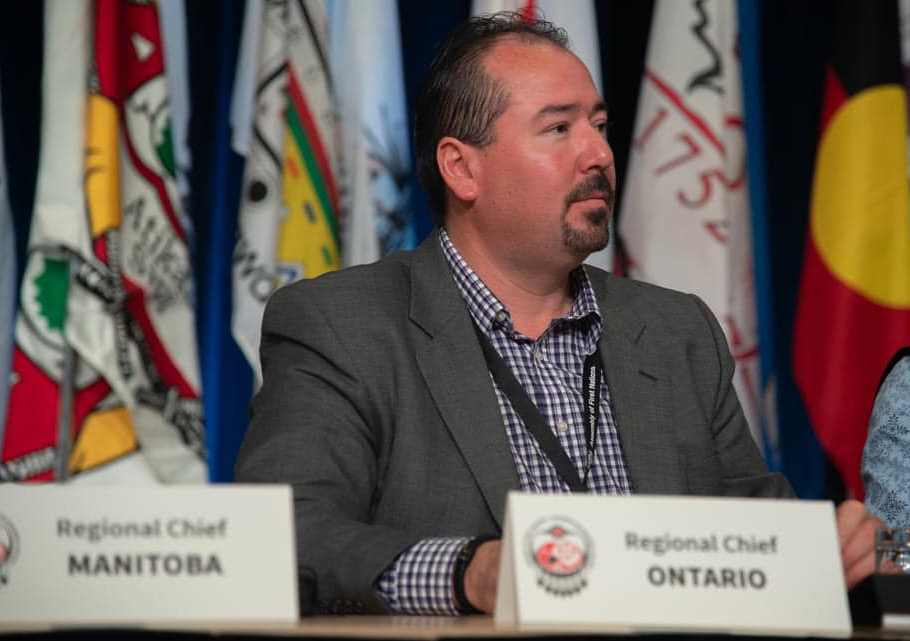
The federal government will investigate concerns about therapists with troubling backgrounds approved to provide mental health care to First Nations and Inuit people under its national benefits program.
“Indigenous Services Canada (ISC) has been made aware of concerns related to specific mental health therapists” enrolled in the federal government’s Non-Insured Health Benefits (NIHB) program, reads a statement Saturday from a spokesperson. “Indigenous Services Canada takes these concerns seriously … The NIHB program will follow up immediately, prioritizing client safety (including emotional and psychological safety) and taking steps to address these.”
The move comes in response to a Investigative Journalism Bureau/Toronto Star/TVO investigation published last week that found the program has approved mental health-care providers with serious criminal and professional disciplinary histories that include offences such as murder, having sex with a former patient and allegedly abandoning a suicidal patient. Another therapist made social media posts that offended Indigenous patients and mental health experts, including one article he reposted that said residential schools had the “intent of educating children, assimilating them into the broader Canadian population, and ultimately lifting them out of poverty.”
The ISC statement says officials “recognize that finding culturally safe and appropriate mental health care remains a challenge for many. However, due to privacy implications, we cannot speak to the specifics of these concerns.”
Response to the investigation’s findings has also been swift from Indigenous leaders.
On Friday, the Chiefs of Ontario, which advocates for 133 First Nations in the province, issued a strongly worded statement calling the revelations “deeply troubling” and says they “call into question the very foundations of a program that is meant to heal, not hurt, First Nations people.” The statement urged the federal government to act.
Ontario Regional Chief Abram Benedict said the organization will monitor the government’s response to calls for “desperately needed” reforms.
“This cannot be ignored any longer.”
The NIHB program covers the medical costs of a wide range of services — including therapy, dental care, medical devices and medications — for Inuit and First Nations people, who face some of the highest rates of suicide in the world. It is administered through a U.S.-based benefits company that received a $117-million, five-year contract with the government in 2018 with renewal options up to 11 years. There are about 5,000 counsellors approved to bill the program directly. Journalists reviewed the backgrounds of thousands, using professional disciplinary records, court documents and social media searches.
Only about a quarter of counsellors approved by the NIHB self-reported having cultural competency or previous experience working with First Nations or Inuit clients.
The investigation also found the program prevents many qualified Indigenous therapists from treating First Nations and Inuit patients under the program, because they live in provinces without professional licensing bodies.
ISC relies on provincial licensing for NIHB eligibility and has said concerns about the conduct of counsellors and therapists fall to regulators in each province and territory.
Indigenous mental health leaders have called that reliance on provincial licensing bodies indefensible, saying NIHB needs to take responsibility for the quality of therapists treating this uniquely vulnerable patient group.
“That said,” the government said after the article published Friday, “when ISC becomes aware of a complaint against a specific health professional, we will also review the situation, in collaboration with the regulatory body.”
Carol Hopkins, an Indigenous therapist who has worked in addiction and mental health in First Nation communities for over 20 years, said NIHB should go further and “ask (potential providers), have you had any disciplinary action and have you ever had any claims filed against you? … The perpetuation of harm just continues.”
Lori Idlout, federal NDP critic of Crown-Indigenous relations (Nunavut) and a member of the standing committee on Indigenous and Northern Affairs, said in an interview Saturday that the NIHB system needs to be “overhauled.”
“There are so many gaps in this program,” she said in response to the investigation. “There are too many times where First Nations and Inuit realities are still not understood, especially with academically certified mental health providers.”
This story was also published in the Toronto Star.
Read more from this series:

A murder conviction. Sex with an ex-client. Defending residential schools. Critics are alarmed at background of therapists approved for Indigenous mental health program
A program meant to fund care for Indigenous patients is instead failing them by endorsing therapists with spotted histories, critics charge.

Canada’s Indigenous mental health program is meant to be a lifeline. Instead, it’s so mired in red tape it seems ‘set up to deter people from accessing’ care
The federal government says it is working to make care more accessible and aims to reimburse patients on time, while also offering a crisis helpline.

‘Deeply troubling’: Ontario chiefs call for reforms to federal health program after Star/IJB investigation
The Chiefs of Ontario is demanding the federal government immediately review the professional backgrounds of therapists approved to treat First Nations and Inuit patients and remove those with questionable histories.
The IJB is a nonprofit, collaborative newsroom focused on delivering deeply reported stories in the public interest. We rely on the support of individuals like you to continue our work. Consider
- Feds vow to probe findings of IJB/Star/TVO investigation on mental health care for Indigenous people - 4 November 2024
- ‘Deeply troubling’: Ontario chiefs call for reforms to federal health program after Star/IJB investigation - 3 November 2024
- ‘I am deeply troubled’: Head of Ontario law society speaks out after Star/IJB investigation into sexual harassment among lawyers - 25 October 2024